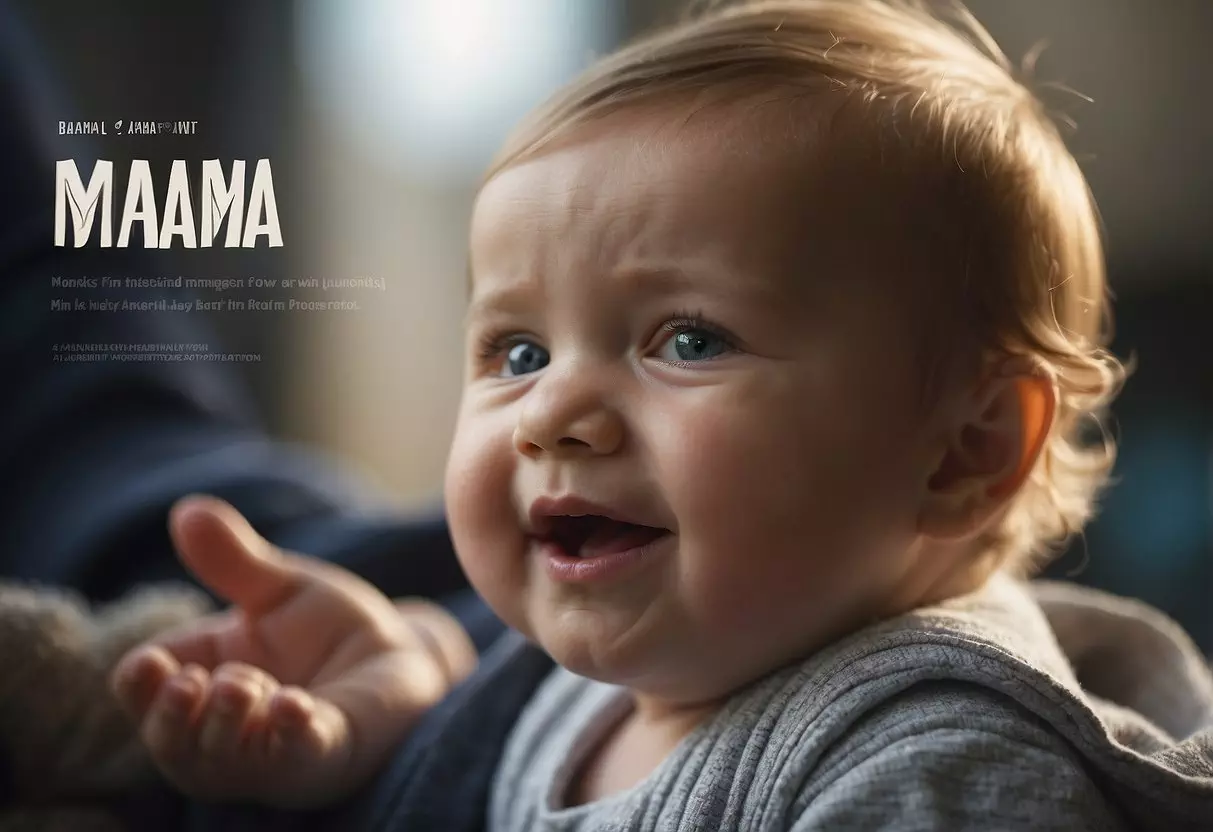What’s the Easiest Word for a Baby to Say? Simple Sounds for Tiny Tots
Wondering what the easiest word for your baby to say is? It’s a thrilling milestone when your little one utters their first word. “Mama” or “Dada” are often the easiest words for babies to say, as these terms use simple, repetitive sounds that are easy for them to mimic.

At around 4 to 6 months, babies begin to babble, making sounds like “m,” “b,” and “p.” These early sounds are the building blocks for forming their first word. Repeating these sounds yourself can encourage your baby to try saying them too.
While every child’s language development is unique, knowing what to expect can help you support your baby on their journey to talking. Check out the common first words for babies and get ready to celebrate this exciting phase!
Table of Contents
Exploring Baby’s First Words
When your baby starts to communicate, their first words are magical moments. They begin with babbling and cooing, which evolve into actual words. Recognizing these milestones helps track their early language skills.
Understanding Babbling and Early Sounds
Babies typically start making sounds like cooing around 2 months. This cooing includes vowel-like “oo” and “ah” sounds. By 6 months, babbling begins. Your baby may say repetitive consonant-vowel combinations like “ba-ba” or “da-da.”
Babbling is crucial for language development. It helps babies practice mouth movements necessary for speech. Encouraging babbling by talking and reading to your baby can boost their communication skills. It’s an early step in recognizing and forming words.
Common First Words for Babies
Common first words often relate to familiar people and objects. Many babies say “mama” and “dada” as some of their earliest words. These are easy because they involve simple mouth movements. Other frequent first words include “hi,” “bye,” “ball,” “car,” “dog,” and “cat.”
These words are usually part of their daily environment and are repeated often. Babies tend to mimic what they hear most frequently. You might find that your baby’s first words list includes these familiar, easy-to-pronounce words.
Language Milestones to Watch For
By 12 months, many babies have spoken their first word. Typically, they have a vocabulary of about 1 to 3 words. From 12 to 18 months, expect their vocabulary to grow quickly. By 18 months, they might know around 15 to 20 words.
Language milestones are important indicators of development. Babies not only start speaking but also understanding simple instructions. Encouraging your baby by talking, reading, and playing interactive games helps them reach these milestones. Keep an eye on their progress and consult with your pediatrician if you have concerns about their speech development.
Factors Influencing Language Acquisition

Several key factors play a crucial role in how babies acquire language. These include the ability to imitate and the importance of interaction with family members.
The Role of Imitation and Interaction
Babies often learn their first words by imitating sounds they hear around them. Common first words like “mommy” and “daddy” are easy to replicate. Brain development supports this ability to imitate, which is an essential part of language acquisition.
Interaction with family members is equally important. When you engage in playtime with your baby, use gestures, and verbal communication, it helps expand their vocabulary. Talking to your baby during everyday activities like feeding or dressing also enhances their language skills.
By understanding these factors, you can create a supportive environment that encourages your baby’s speech development. Using simple words and consistent interaction makes learning more effective and fun.
Encouraging Baby’s Communication Skills

To teach your baby to talk and help them transition from words to sentences, focus on interactive and engaging methods. Use familiar words and phrases to make the process enjoyable and effective.
Effective Ways to Teach Baby to Talk
One of the simplest actions you can take is narrating your day. For example, say “I’m cutting an apple” while you cut an apple. This technique makes it easier for your baby to understand everyday activities and pick up new words.
Interactive activities are also key. Sing simple songs that rhyme like “One, Two, Buckle My Shoe.” Rhymes make language fun and memorable. Additionally, point out objects and say their names. For instance, use words like “here,” “there,” and “all done” during daily routines.
Responding to your baby’s gestures and sounds with actual words helps too. If your baby points at a toy, say “toy” or “there’s your toy.” This both acknowledges their interest and enriches their vocabulary. Over time, these interactions build a strong foundation for expressive language development.
Transitioning from Words to Sentences
After your baby masters individual words, start combining them into two-word sentences. Simple phrases like “more milk” or “all done” are good starting points. Encourage use of these phrases during appropriate contexts, such as mealtime.
Repeating phrases is important. If your baby says “thank you,” expand it to “thank you, please.” This helps them understand sentence structure and social cues. Try to use phrases naturally throughout the day so your baby gets accustomed to hearing and using them.
Meeting communication milestones can be more manageable with patience and practice. Remember to celebrate small victories. If your child says “please” for the first time, celebrate it. Encouragement helps them feel confident in their expressive language.
By using these methods consistently, you can effectively teach your baby to transition from simple words to complete sentences, enriching their communication skills.
